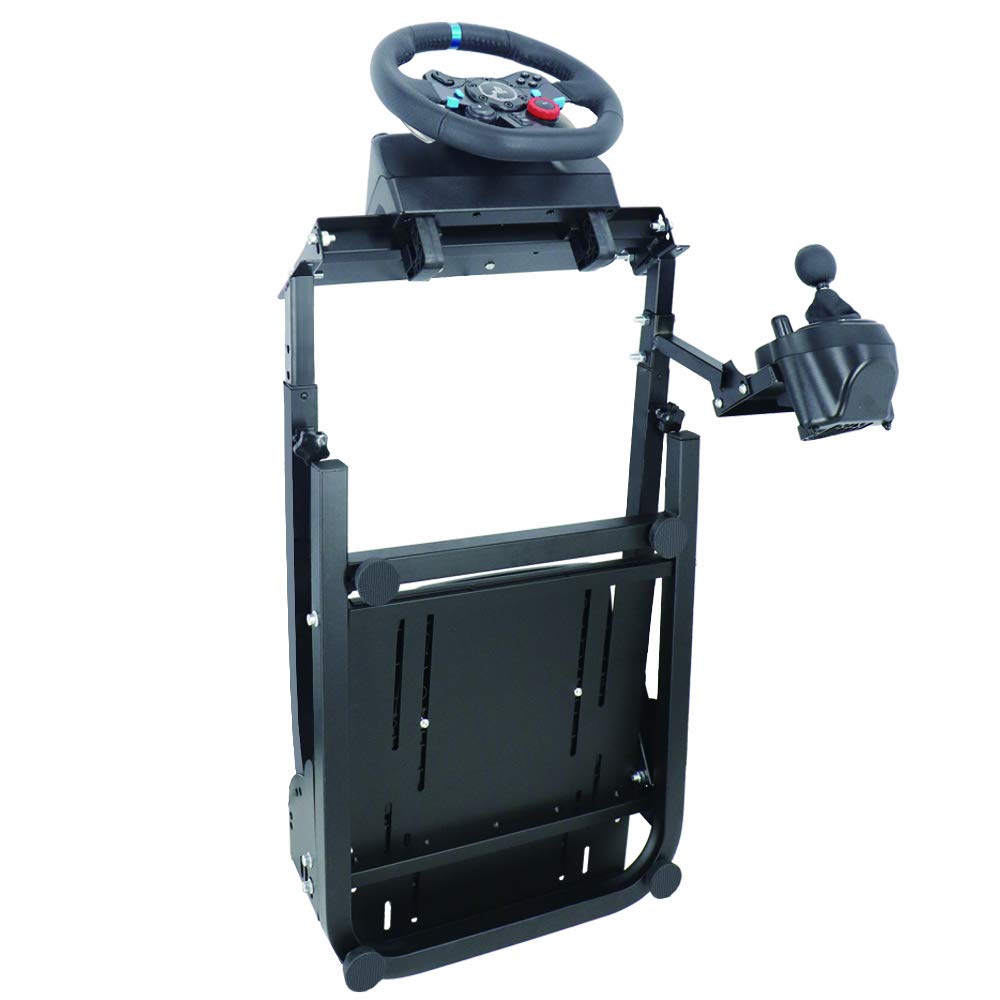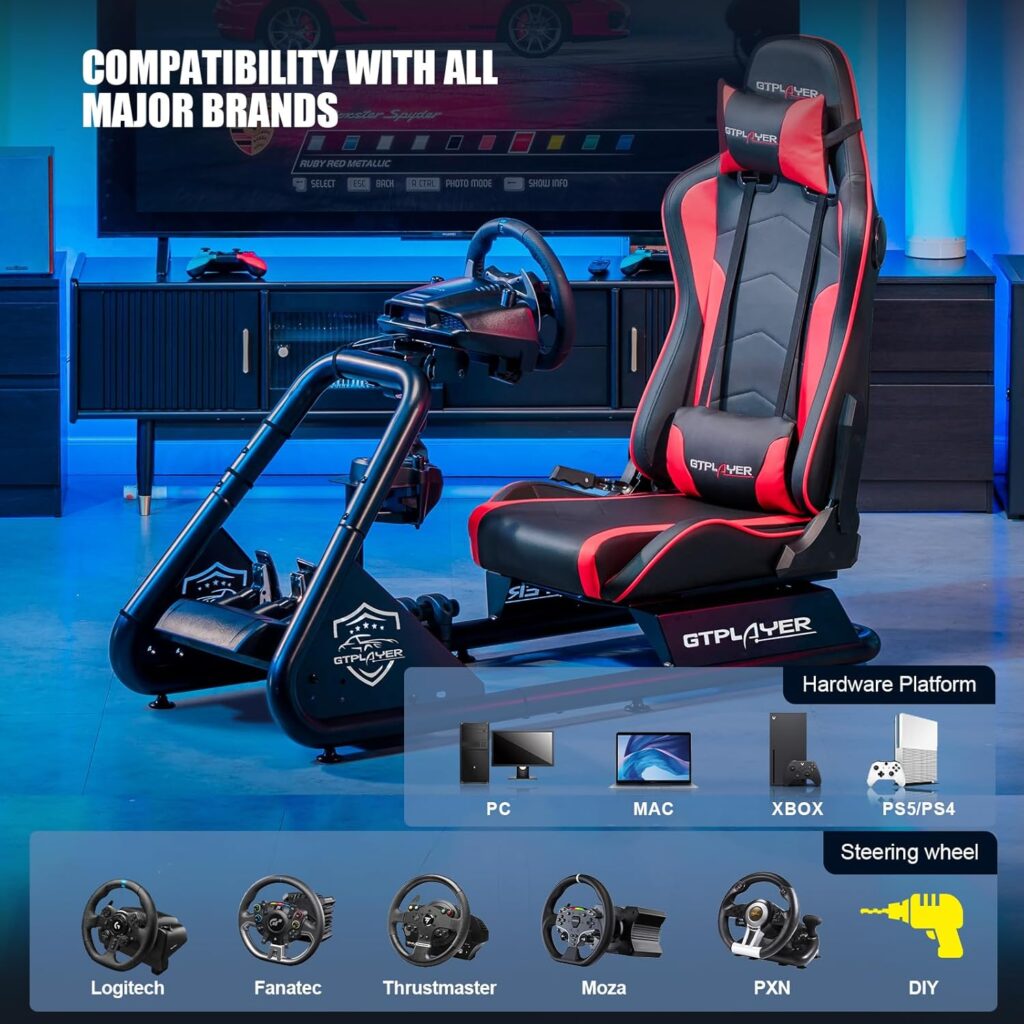Have you ever wondered how to create a realistic race weekend structure in sim racing? Whether you’re a novice or an experienced racer, setting up a well-organized race weekend can greatly enhance your virtual racing experience. From practice sessions to qualifying rounds and the main event, this article will guide you through the necessary steps to create an immersive and authentic race weekend format in the world of sim racing. By following these steps, you’ll be able to replicate the excitement and intensity of real-life racing right from the comfort of your own home. Get ready to rev up your engines and embark on an unforgettable sim racing adventure!
Choosing the Race Format
Selecting the Race Length
When it comes to choosing the race format for your sim racing event, one of the key decisions to make is the race length. The race length can vary depending on the preferences of the participants and the level of realism you want to achieve. Shorter races, such as sprint races, can provide quick and intense action, while longer races, like endurance races, test the drivers’ endurance and strategy.
Deciding on the Number of Races
Another important factor to consider is the number of races in your race weekend. This will depend on various factors, such as the available time, the number of participants, and the level of competition desired. You could opt for a single race event or a multi-race format, such as a championship, where participants accumulate points over several races to determine the ultimate winner.
Determining the Race Type
The race type refers to the format of the race itself. Sim racing offers a wide range of race types to choose from, such as circuit races, oval races, rally races, or even street races. Consider the preferences of your participants and the characteristics of your chosen sim racing platform when deciding on the race type. Each type offers its own unique challenges and excitement, allowing participants to showcase their skills in different ways.
Creating a Schedule
Setting the Race Date and Time
Once you have determined the race format, it is time to establish a schedule for your race weekend. Start by setting the date and time of your event, taking into consideration the availability of your participants and any other real-world events that may conflict. Ensure that the chosen timing is convenient for most participants, allowing them to fully dedicate their time and attention to the race.
Allocating Practice Time
Practice is essential to help participants familiarize themselves with the track, test setups, and refine their driving skills. Allocate ample practice time before the race sessions to allow participants to get comfortable with the sim racing platform, track layout, and vehicle handling. This will help level the playing field and create a fair and competitive environment for all participants.
Deciding Qualifying Periods
Qualifying sessions determine the starting grid positions for the race and add an exciting element of competition before the main event. Determine the duration and number of qualifying sessions based on the number of participants and the desired level of challenge. Consider using timed qualifying sessions or even elimination-style formats to make the qualifying process engaging and thrilling for participants.
Scheduling the Races
Once you have determined the race length, number of races, and race type, it is time to create a race schedule. Ensure that there is sufficient time between each race, allowing participants to prepare their vehicles, analyze race data, and recharge themselves mentally for the next challenge. Avoid scheduling races back-to-back to prevent fatigue and give everyone a chance to rest and regroup.
Planning Breaks and Delays
It is important to account for breaks and potential delays during your race weekend. Sim racing can be mentally and physically demanding, and participants will appreciate scheduled breaks to relax, refuel, and socialize with fellow racers. Additionally, technical issues or unforeseen circumstances may cause delays during the event. Plan for contingencies and have a backup schedule in case of unexpected interruptions to ensure a smooth and enjoyable race weekend for everyone involved.

Establishing Race Rules
Defining Required Equipment
To ensure fair competition and a level playing field, it is important to define the required equipment for your race weekend. Specify the sim racing platform, hardware, and software that participants must use, including the type of racing wheel, pedals, and any additional accessories. By standardizing the equipment, you can ensure that everyone has equal opportunities to showcase their skills and enjoy a realistic racing experience.
Setting Up Car Classes
Car classes help categorize participants based on the performance capabilities of their chosen vehicles. They can range from beginner-friendly classes with slower vehicles to advanced classes with high-performance cars. Consider the skill levels and preferences of your participants when setting up the car classes, ensuring that each class provides a fair and competitive environment for the drivers.
Determining Pit Stop Rules
Pit stops add a strategic element to sim racing and allow participants to fine-tune their strategies during the race. Establish pit stop rules, such as the required number of pit stops, the maximum time allowed for a pit stop, and any restrictions or penalties associated with pit lane violations. Clearly communicate these rules to the participants to ensure a consistent and fair pit stop procedure during the race.
Implementing Flags and Penalties
To replicate real-world racing, implementing a system of flags and penalties is essential. Sim racing platforms often offer options to include virtual flags, such as yellow flags for caution periods or blue flags to indicate slower traffic. Determine the penalties for rule violations, such as exceeding track limits or causing avoidable collisions, and enforce them consistently to maintain a fair and sportsmanlike racing environment.
Enforcing Fair Play & Sportsmanship
Fair play and sportsmanship are integral to creating a positive racing experience. Clearly communicate the expectations of fair play and sportsmanship to all participants, emphasizing the importance of respectful and clean racing. Encourage drivers to be mindful of others, avoid reckless maneuvers, and treat their fellow competitors with respect both on and off the track. Remind participants that sim racing is about more than just winning; it is about enjoying the thrill of competition and camaraderie.
Preparing the Race Environment
Choosing the Sim Racing Platform
The choice of sim racing platform plays a crucial role in creating a realistic and immersive racing experience. Explore the available options and select a platform that offers high-quality graphics, realistic physics, and a wide range of racing options. Consider factors such as compatibility with different hardware setups, ease of use, and the availability of online multiplayer features to ensure an engaging and enjoyable racing environment.
Selecting the Track
The track selection greatly influences the overall racing experience. Choose a track that offers a good balance of challenges and excitement, catering to the skill levels and preferences of your participants. Consider tracks with various layouts, elevations, and difficulties to keep participants engaged and allow them to showcase their driving skills in different scenarios. Research and provide track information to participants to help them prepare and familiarize themselves with the chosen circuit.
Customizing Weather Conditions
Sim racing allows you to replicate a wide range of weather conditions, adding a realistic and unpredictable element to the races. Consider customizing the weather conditions based on the chosen track and specific race scenarios. Whether it’s rain, fog, or changing temperatures, adjusting the weather conditions can significantly impact tire grip, visibility, and overall race strategy. Experiment with different weather settings to keep the racing experience fresh and challenging.
Adjusting Time of Day
Sim racing platforms often allow you to adjust the time of day for your races. From early morning to dusk or nighttime races, different lighting conditions can affect visibility and add another layer of realism to the race environment. Take advantage of this feature to create unique and visually stunning race experiences, providing participants with a variety of atmospheric settings to race in.

This image is property of images.pexels.com.
Organizing Support Staff
Appointing Race Stewards
Race stewards play a crucial role in ensuring fair play and enforcing race rules. Appoint experienced sim racers or individuals with a deep understanding of sim racing rules and procedures to act as race stewards. Their responsibilities include monitoring on-track behavior, reviewing incidents, and issuing penalties when necessary. Train the race stewards to be objective, consistent, and impartial in their decision-making to maintain a fair and competitive racing environment.
Assigning Pit Crew Members
Pit crew members are responsible for assisting participants during their pit stops. Assign individuals who are knowledgeable about sim racing strategies, tire management, and vehicle setup to act as pit crew members. Their role involves providing real-time advice, adjusting vehicle settings, and executing quick and efficient pit stops. Pit crew members contribute to the overall racing strategy and can make a significant impact on a participant’s performance.
Designating Race Control Personnel
Race control personnel oversee the operation of the race sessions, ensuring that everything runs smoothly. They are responsible for managing incidents, communicating with race stewards and marshals, and coordinating any necessary adjustments during the race. Designate individuals who are skilled at multitasking, staying calm under pressure, and communicating effectively to act as race control personnel. Their role is vital in maintaining the integrity of the race and providing a seamless experience for participants.
Coordinating Marshals or Track Officials
Marshals or track officials play a crucial role in ensuring the safety of the participants and the smooth operation of the event. They are responsible for monitoring track conditions, reporting incidents, and implementing appropriate safety procedures. Coordinate with individuals who have experience in marshaling or track management to act as marshals or track officials. Their presence adds an extra layer of safety and professionalism to your race weekend.
Training and Briefing Participants
Providing Sim Racing Training
Sim racing training is essential, especially for participants who are new to the world of virtual racing. Provide tutorials or training sessions to familiarize participants with the sim racing platform, controls, and racing techniques. Cover topics such as braking, acceleration, cornering, and understanding race-specific features such as tire wear and fuel consumption. Empower participants with the knowledge and skills necessary to navigate the virtual race track confidently.
Explaining Race Rules and Procedures
Clear communication of race rules and procedures is crucial to ensure a fair and organized race weekend. Conduct a comprehensive briefing before the event, explaining the race format, qualifying rules, pit stop procedures, and penalties for rule violations. Share any specific conditions or regulations regarding the chosen sim racing platform, track, or vehicle classes. Provide participants with written documentation summarizing the key rules and procedures to reference throughout the event.
Conducting Safety Briefings
Safety should always be a top priority in sim racing. Conduct safety briefings to ensure that participants are aware of the potential risks and understand how to race safely. Emphasize the importance of respecting track limits, avoiding unnecessary contact with other vehicles, and following the instructions of marshals and race control personnel. Provide guidelines on how to handle emergency situations, potential disconnections, or technical issues during the race to ensure the safety and well-being of all participants.
Communicating Schedule and Updates
Effective communication is vital for a successful race weekend. Keep participants informed about the race schedule, updates, and any changes or additions to the event. Utilize various communication channels, such as email, social media, or dedicated race forums, to relay important information in a timely manner. Encourage participants to raise any questions or concerns they may have regarding the race schedule or procedures, and address them promptly to foster a positive and well-informed racing community.

This image is property of images.pexels.com.
Managing Driver Registrations
Creating a Registration System
Setting up a registration system is essential for managing participant sign-ups efficiently. Create a user-friendly online registration form that collects essential information, including contact details, racing experience, and the participant’s chosen vehicle class or category. Automate the registration process as much as possible, ensuring that participants receive confirmation emails and their details are stored securely for future reference.
Collecting Entry Fees
Depending on the nature of your event, you may need to collect entry fees from participants. Determine the entry fee amount based on the costs involved in organizing the event, such as prizes, technical support, and marketing expenses. Set up a secure payment system that allows participants to make the required payment online, ensuring a smooth and hassle-free registration process.
Verifying Licenses or Skill Levels
For more competitive events, it may be necessary to verify participant licenses or skill levels before allowing them to compete. This can help ensure that participants are evenly matched based on their racing experience and skill level. Request participants to submit proof of previous race results, skill assessments, or sim racing licenses as part of the registration process. Review and verify these documents to place participants in the appropriate classes or categories.
Managing Participant Data
Accurate and up-to-date participant data is essential for organizing a successful race weekend. Store participant information securely and keep it easily accessible for reference. This data can include contact details, hardware setups, track records, and previous race results. Having comprehensive data allows you to communicate effectively, tailor the race experience to participants’ preferences, and provide personalized support when needed.
Sending Confirmation and Reminders
Once participants have registered, it is crucial to send them confirmation emails to acknowledge their registration and provide any necessary details. Include information such as the event schedule, links to any required software or updates, and instructions on how to join the race sessions. Additionally, send reminders closer to the race date to ensure that participants are well-prepared and have all the necessary information to enjoy a smooth and enjoyable race weekend.
Promoting the Race Weekend
Creating Event Marketing Materials
Effective marketing is key to attracting participants to your race weekend. Create eye-catching event marketing materials, such as posters, banners, or social media graphics, that highlight the unique aspects of your event. Include key details, such as the date, time, venue (if applicable), and any special features or prizes. Use visually appealing images and concise, engaging language to generate interest and excitement around your race weekend.
Utilizing Social Media
Social media platforms offer a vast reach and provide an excellent opportunity to promote your race weekend. Create event pages or groups on platforms such as Facebook, Instagram, or Twitter to interact with the sim racing community. Share engaging content, such as race teasers, participant spotlights, or behind-the-scenes photos, to build anticipation and attract participants. Encourage participants to share your posts and use event-related hashtags to expand your event’s visibility.
Contacting Sim Racing Communities
Sim racing communities can be a valuable resource when it comes to promoting your event. Reach out to established sim racing communities, forums, or websites and share information about your race weekend. Offer them the opportunity to collaborate or become official partners of the event, allowing them to promote it to their members or readers. Sim racing enthusiasts are often eager to participate in well-organized events, making these communities an excellent avenue for spreading the word about your race weekend.
Advertising the Event
Consider investing in targeted online advertisements to maximize the visibility of your race weekend. Advertise on sim racing websites or forums, racing-oriented publications, or other relevant platforms that can reach your target audience. Tailor your advertisements to showcase the unique aspects of your event, such as the race format, prizes, or the level of realism offered by your chosen sim racing platform. A well-placed and enticing advertisement can grab the attention of potential participants and generate interest in your race weekend.

Hosting the Race Weekend
Providing Technical Support
Technical issues are not uncommon in sim racing, and it is crucial to provide participants with reliable technical support throughout the race weekend. Assign knowledgeable individuals who can assist with troubleshooting or provide guidance on hardware or software-related issues. Create a dedicated support channel, such as a helpline or email address, where participants can reach out for assistance. Prompt and effective technical support ensures that participants can fully enjoy the racing experience without significant disruptions.
Monitoring Race Sessions
As the host of the race weekend, it is important to actively monitor the race sessions to ensure they are running smoothly. Keep an eye on the track, observe participants’ behavior, and address any rule violations or incidents promptly. Act as a neutral observer, applying the established race rules consistently and fairly. Proactive monitoring contributes to a safe and competitive environment, allowing participants to focus on their racing performance.
Managing Pit Stops
Pit stops are an integral part of sim racing and can determine the outcome of a race. Ensure participants have a seamless pit stop experience by monitoring their pit stop procedures. Address any potential issues, such as incorrect procedures or unfair advantages, to maintain a level playing field. Provide necessary guidance or reminders to participants about the pit stop rules and monitor pit lane behavior to ensure a fair and efficient race.
Handling Disconnections or Crashes
Disconnections or crashes can occur during a race and can be frustrating for participants. Establish protocols for handling such situations, including potential disconnections from the race server or in-game crashes. Determine whether race restarts are allowed under certain circumstances or if participants can rejoin the race. Communicate these procedures clearly to participants to minimize confusion and ensure a fair resolution in case of technical issues.
Recognizing and Celebrating Winners
Determining Podium Ceremonies
Podium ceremonies add a touch of excitement and celebration to the race weekend. Determine the format and protocol for the podium ceremonies, considering factors such as the number of races, the race format, and the available resources. Depending on your event’s scale and budget, you can arrange for physical podiums, virtual podium ceremonies within the sim racing platform, or even live-streamed ceremonies with participants joining remotely. Podium ceremonies serve as a rewarding and memorable way to recognize the achievements of the winners.
Awarding Trophies or Prizes
Rewarding participants for their achievements is a great way to motivate and acknowledge their efforts. Determine the prizes or trophies to be awarded to the winners, considering the available budget and the significance of your race weekend. Prizes can range from virtual trophies or in-game rewards to tangible items such as customized trophies, sim racing equipment, or even cash prizes. Ensure that the prizes are relevant, valuable, and reflective of the time and dedication participants have invested in the race weekend.
Promoting Race Results
After the race weekend, it is important to promote and share the race results with the participants and the wider sim racing community. Prepare a comprehensive race report that highlights the winners, their lap times, and any notable performances or incidents. Share this report through social media, sim racing forums, or race recaps on blogs or websites dedicated to the sim racing community. Celebrating the race results not only recognizes the winners but also generates excitement and interest in future events.

This image is property of images.pexels.com.




